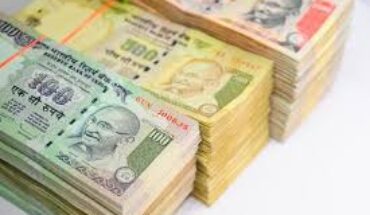Moody’s Investors Service slashed India’s economic growth projection for 2022 to 7.7 per cent, citing dampening of economic momentum in coming quarters on rising interest rates, uneven monsoon, and slowing global growth.
This is a sharp 1.1 percentage points cut from the growth projection of 8.8 per cent for current year made in May by Moody’s.
The Indian economy grew 8.3 per cent in 2021 after a 6.7 per cent contraction in 2020, the year when the pandemic struck the country.
In its update to Global Macro Outlook 2022-23, Moody’s said India’s central bank is likely to remain hawkish this year and maintain a reasonably tight policy stance in 2023 to prevent domestic inflationary pressures from building further.
Our expectation that India’s real GDP growth will slow from 8.3 per cent in 2021 to 7.7 per cent in 2022 and to decelerate further to 5.2 per cent in 2023 assumes that rising interest rates, uneven distribution of monsoons, and slowing global growth will dampen economic momentum on a sequential basis, Moody’s said.
Moody’s projections came a day after India released its GDP estimates for June quarter as per which the economy expanded 13.5 per cent in the three-month period.
This was higher than 4.1 per cent GDP growth clocked in January-March.
Moody’s said high-frequency data for the Indian economy shows strong and broad-based underlying momentum in the first four months (April-July) of fiscal year 2022-23.
As per official GDP estimates, the economy expanded 13.5 per cent in April-June 2022-23, higher than 4.10 per cent growth clocked in previous March quarter.
Moody’s said services and manufacturing sectors have seen robust upswings in the economic activity, according to hard and survey data, such as PMI, capacity utilization, mobility, tax filing and collection, business earnings and credit indicators.
However, inflation remains a challenge with the RBI having to balance growth and inflation, while also containing the impact of imported inflation from the year-to-date depreciation of the Indian rupee against the US dollar of around 7 per cent .
India’s economic growth before the COVID-19 shock had materially slowed because of the impact of corporate-sector deleveraging on business investment.
“With the deleveraging complete, corporate-sector investment is showing early signs of a pick-up, which could provide support to a continued business cycle expansion through several quarters, supported by investment-friendly government policies and the rapid digitization of the economy,” Moody’s added.
With regard to inflation, Moody’s expects inflationary pressures to weaken in July-December period of current year and further in 2023.
A quicker let-up in global commodity prices would provide significant upside to growth. In addition, economic growth would be stronger than what is being projected for 2023 if the private-sector capex cycle were to gain steam, it added.
Although inflation eased slightly to 6.7 per cent in July, it remains above the central bank’s target range of 2-6 per cent for the seventh straight month.
The RBI forecasts that inflation will remain high into 2023 and has hiked rates three times this year to 5.4 per cent to tame inflation.
The central bank is likely to remain hawkish this year and maintain a reasonably tight policy stance in 2023 to prevent domestic inflationary pressures from building further, it added.
On downward revision in growth forecast, Moody’s said the outlook continues to weaken, particularly as financial conditions have tightened following moves by central banks to tamp down persistent inflation.
Our revised projections reflect the significant deterioration in the outlooks of several major economies since the start of the year. After 5.9 per cent GDP growth in 2021, we now expect growth of the G-20 economies to decelerate to 2.5 per cent in 2022, followed by 2.1 per cent in 2023, it said.
For China, the GDP growth forecast has been pegged at 3.5 per cent for 2022, lower than 4.5 per cent forecast in May. In 2023, China’s economy is estimated to grow 4.8 per cent.
Moody’s said the global economy faces risks from the Russia-Ukraine conflict, and risk of further energy shocks remains high.
It said global trade in durable goods and commodity prices are set to soften and a pullback in goods demand is underway.





